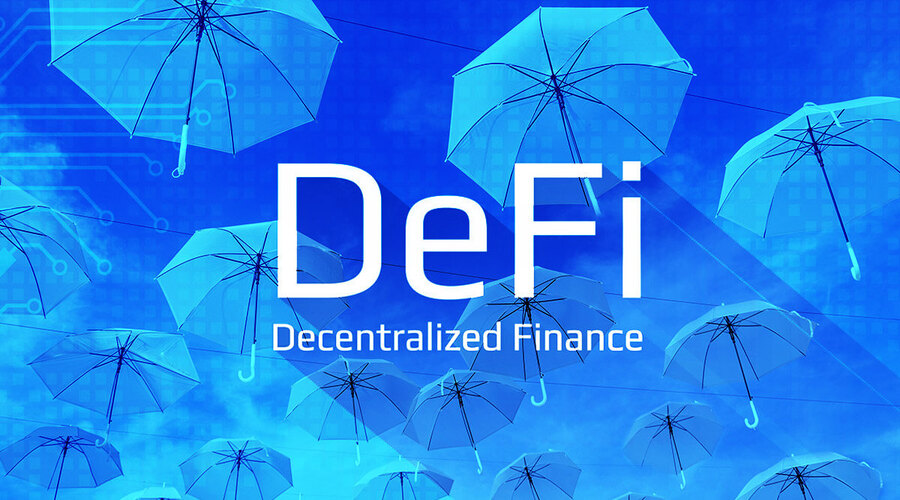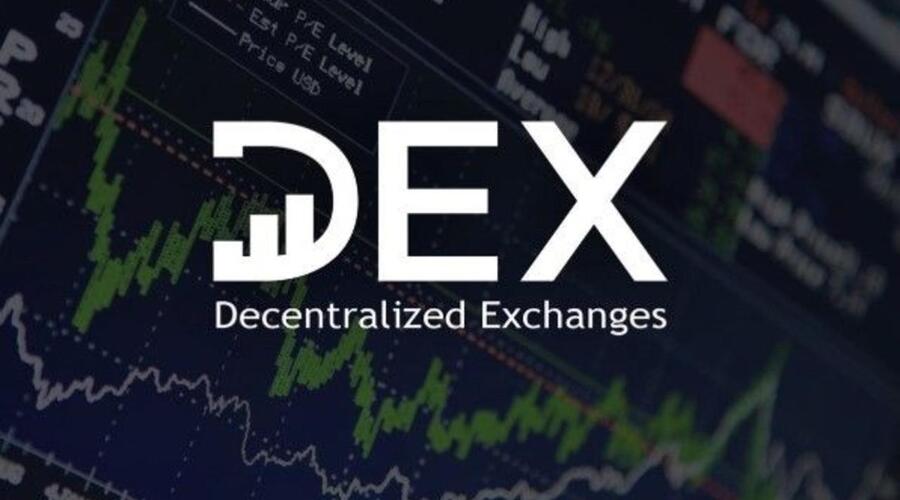DeFi insurance has emerged as a critical component of the decentralized finance ecosystem, providing participants with protection against various risks. As the DeFi landscape continues to evolve rapidly, it is essential to explore the future of DeFi insurance and anticipate the trends that will shape its development. In this article, we will delve into the predictions and trends that are expected to shape the future of DeFi insurance.
Introduction
DeFi insurance has witnessed significant growth and adoption, providing participants with a safety net against potential risks in the decentralized finance space. Looking ahead, several predictions and trends are likely to shape the future of DeFi insurance, ensuring its continued development and addressing emerging challenges.
Expansion of Coverage Options
In the future, we can expect a significant expansion of coverage options in DeFi insurance. As the DeFi ecosystem diversifies, insurance protocols will likely offer coverage for a broader range of risks and activities. This expansion may include coverage for new DeFi protocols, smart contract upgrades, governance-related risks, liquidity pool vulnerabilities, and more. By providing comprehensive coverage options, DeFi insurance protocols can cater to the evolving needs of participants and support the growing complexity of the DeFi landscape.
Interoperability and Collaboration
Interoperability and collaboration are crucial trends that will shape the future of DeFi insurance. As the number of DeFi protocols and platforms increases, participants will seek seamless integration of insurance coverage across multiple platforms. Interoperability will enable participants to obtain coverage that extends beyond individual protocols, creating a more cohesive and interconnected insurance ecosystem. Collaboration between insurance protocols, DeFi platforms, and other ecosystem stakeholders will foster innovation, enhance risk management practices, and promote the overall stability of the DeFi insurance space.
Integration of Oracle Solutions
The integration of oracle solutions is expected to play a significant role in the future of DeFi insurance. Oracles provide real-world data to smart contracts, enabling them to assess and trigger insurance claims automatically. As oracles become more reliable and sophisticated, insurance protocols can leverage this technology to enhance the accuracy and efficiency of claims assessment and settlement. The integration of oracles will improve the overall transparency, speed, and reliability of insurance processes, further strengthening the trust and effectiveness of DeFi insurance.
Enhanced Risk Assessment and Modeling
Advanced risk assessment and modeling techniques will become increasingly important in the future of DeFi insurance. With the growing complexity of DeFi protocols and the emergence of new risks, insurance protocols will need to adopt more sophisticated risk assessment mechanisms. This may involve leveraging artificial intelligence, machine learning, and data analytics to evaluate risks and price premiums accurately. Enhanced risk assessment and modeling will enable insurance protocols to provide more precise and tailored coverage, ensuring that participants are adequately protected against evolving threats.
Decentralized Claims Assessment
Decentralized claims assessment is another trend that will shape the future of DeFi insurance. Traditional insurance often involves complex claims processes and reliance on centralized authorities. In contrast, DeFi insurance protocols can leverage smart contracts and decentralized governance mechanisms to automate and streamline the claims assessment process. By removing intermediaries and utilizing transparent and auditable smart contracts, participants can experience faster, more transparent, and efficient claims settlement processes.
Regulatory Framework and Compliance

The future of DeFi insurance will also be influenced by the development of regulatory frameworks and compliance standards. As DeFi continues to attract attention from regulatory bodies worldwide, the establishment of clear guidelines and regulations specific to DeFi insurance is expected. Regulatory compliance will enhance the legitimacy and adoption of DeFi insurance by providing participants with a trusted and compliant environment. Additionally, compliance standards will contribute to the prevention of fraud, money laundering, and other illicit activities within the DeFi insurance space.
Integration of AI and Machine Learning
- Integration of AI and machine learning technologies will enhance the capabilities of DeFi insurance protocols.
- AI algorithms can analyze vast amounts of data to identify patterns, detect anomalies, and predict potential risks.
- Machine learning models can continuously learn and adapt to evolving risks, improving risk assessment accuracy.
- These technologies will enable insurance protocols to offer more personalized coverage and proactive risk management.
Cross-Chain Insurance Solutions
- Cross-chain insurance solutions will become increasingly important as interoperability between different blockchain networks improves.
- Participants will seek insurance coverage that extends across multiple chains, ensuring protection for assets held in various protocols.
- Insurance protocols will develop cross-chain capabilities to provide seamless coverage and cater to the expanding multi-chain DeFi ecosystem.
- Cross-chain solutions will enhance the flexibility and accessibility of DeFi insurance for participants.
Gamification of Risk Management
- The gamification of risk management will emerge as a trend in DeFi insurance.
- Insurance protocols may introduce gamified elements, such as rewards and incentives, to encourage responsible risk-taking behavior.
- Gamification can incentivize participants to actively manage their risks, leading to a more informed and risk-aware community.
- By gamifying risk management, insurance protocols can create engaging experiences and promote risk education among participants.
Integration with Traditional Insurance
- Integration with traditional insurance markets will be a significant development in the future of DeFi insurance.
- Collaboration between DeFi insurance protocols and traditional insurance providers can bridge the gap between the decentralized and centralized insurance worlds.
- This integration can enable the pooling of resources and expertise from both sectors, leading to more comprehensive coverage options and enhanced risk management practices.
- The integration of traditional insurance can bring institutional participation and further increase the credibility and stability of DeFi insurance.
Privacy and Data Protection
- Privacy and data protection will be crucial considerations in the future of DeFi insurance.
- Insurance protocols will need to adopt robust privacy measures to protect participants’ sensitive information.
- Implementing privacy-enhancing technologies, such as zero-knowledge proofs and secure data encryption, will ensure confidentiality and compliance with data protection regulations.
- By prioritizing privacy, DeFi insurance protocols can build trust and attract a wider range of participants.
Enhanced Customer Support and Education
In the future, we can expect a stronger focus on customer support and education within DeFi insurance. As the industry matures, insurance protocols will recognize the importance of providing comprehensive support to participants. This may involve establishing dedicated customer support channels, offering educational resources, and hosting workshops or webinars to help participants better understand insurance products and risk management strategies. By prioritizing customer support and education, DeFi insurance protocols can empower participants to make informed decisions, enhance their risk management capabilities, and build long-lasting relationships with the insurance providers.
Dynamic Premium Pricing
Dynamic premium pricing will likely emerge as a trend in the future of DeFi insurance. Traditional insurance often relies on fixed premiums based on historical data and actuarial calculations. However, DeFi insurance protocols can leverage real-time data and smart contract automation to adjust premiums dynamically. Factors such as market volatility, protocol risks, and individual risk profiles can influence premium pricing. This dynamic pricing model allows insurance protocols to align premiums more closely with the actual risk exposure, ensuring fair pricing for participants. By implementing dynamic premium pricing, DeFi insurance protocols can optimize risk-sharing and attract participants with competitive and flexible pricing structures.
Integration with Real-World Assets
The integration of DeFi insurance with real-world assets is another significant development on the horizon. As the DeFi ecosystem expands beyond purely digital assets, participants will seek coverage for real-world assets, such as real estate, commodities, or intellectual property. Insurance protocols can leverage blockchain-based asset tokenization and smart contract technology to provide coverage for these assets. This integration bridges the gap between traditional insurance and DeFi by offering comprehensive coverage for a wider range of assets. By enabling the insurance of real-world assets, DeFi insurance protocols unlock new opportunities for risk management and provide a seamless transition between the physical and digital realms.
Expansion into Niche Insurance Markets
The future of DeFi insurance holds the potential for expansion into niche insurance markets. As the DeFi ecosystem grows, specialized insurance products may emerge to cater to specific industries or sectors. For example, insurance protocols could offer coverage for decentralized autonomous organizations (DAOs), non-fungible tokens (NFTs), or specific verticals such as agriculture or renewable energy. By tailoring insurance products to the unique risks and needs of these niche markets, DeFi insurance protocols can provide targeted coverage solutions and capture untapped opportunities. This expansion into niche insurance markets contributes to the overall maturity and diversification of the DeFi insurance ecosystem.
Collaboration with Regulatory Bodies
Collaboration with regulatory bodies is expected to play a pivotal role in the future of DeFi insurance. As the regulatory landscape evolves, insurance protocols will likely engage in proactive dialogue and collaboration with regulatory authorities. This collaboration can help shape regulations that foster innovation while ensuring consumer protection and financial stability. Working closely with regulatory bodies allows DeFi insurance protocols to establish a clear legal framework, comply with relevant regulations, and provide participants with a trusted and compliant insurance environment. Collaboration with regulatory bodies enhances the credibility and adoption of DeFi insurance and facilitates its integration into the broader financial ecosystem.
Conclusion
In conclusion, the future of DeFi insurance holds promising developments driven by the expansion of coverage options, interoperability, integration of oracle solutions, enhanced risk assessment and modeling, decentralized claims assessment, and the establishment of regulatory frameworks. These predictions and trends will shape the evolution of DeFi insurance, making it more robust, efficient, and accessible for participants in the decentralized finance ecosystem.




